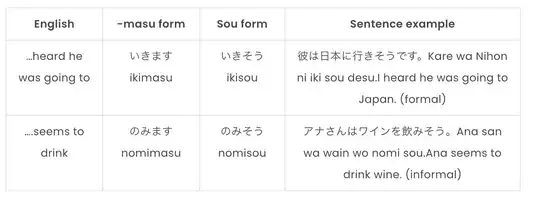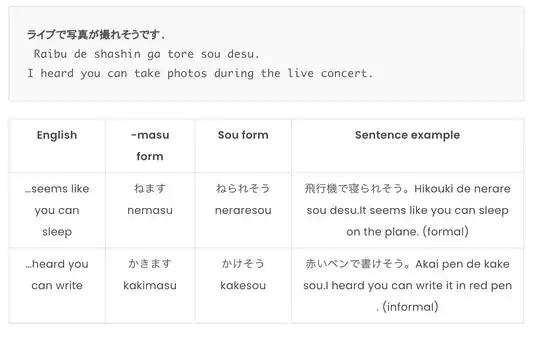To answer your question, stem + そう can't express hearsay.
I believe that they mistyped or something.
Verb stem + そう expresses the following two things.
- It seems like something is about to happen.
- It looks like (It's used when you look at it and think so. It represents the "feel" received from the appearance.)
Some example sentences are below.
あ!ボタンがとれそうですよ!
hey! The button seems to have come off!
買い物しすぎて、ふくろがやぶれそうです。
I shopped too much and my bag is about to burst.
たなかさんは、たくさん車をもっていて、お金がありそうです。
Tanaka has many cars and seems to have money.
These two can sometimes be taken as either meaning, but you can determine which one the speaker meant by the context.
Plain form + そう:hearsay
When you want to express, or convey, information you have seen or heard from others, plain form + そう should be used.
Some example sentences are below.
明日、こうえんでおまつりがあるそうです。
I heard that there will be a festival in the park tomorrow.
来週は、日本語のテストがないそうです。
I heard that there will be no Japanese test next week.
きのう、東京でじしんがあったそうです。
I heard that there was an earthquake in Tokyo yesterday.
父は、こどものとき、お金があまりなかったそうです。
I heard that my father didn't have much money when he was a child.
Note
- I have listed only the verb sentences.
- The part without "masu (ます) " is called the stem of the verb (Verb stem). For example, たべ (たべます) , し(します), あり(あります).

